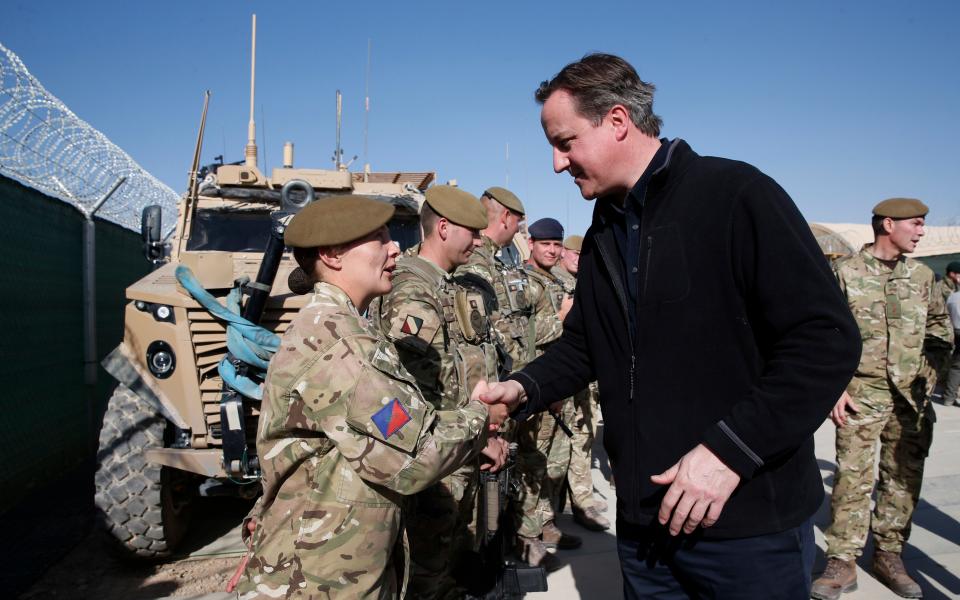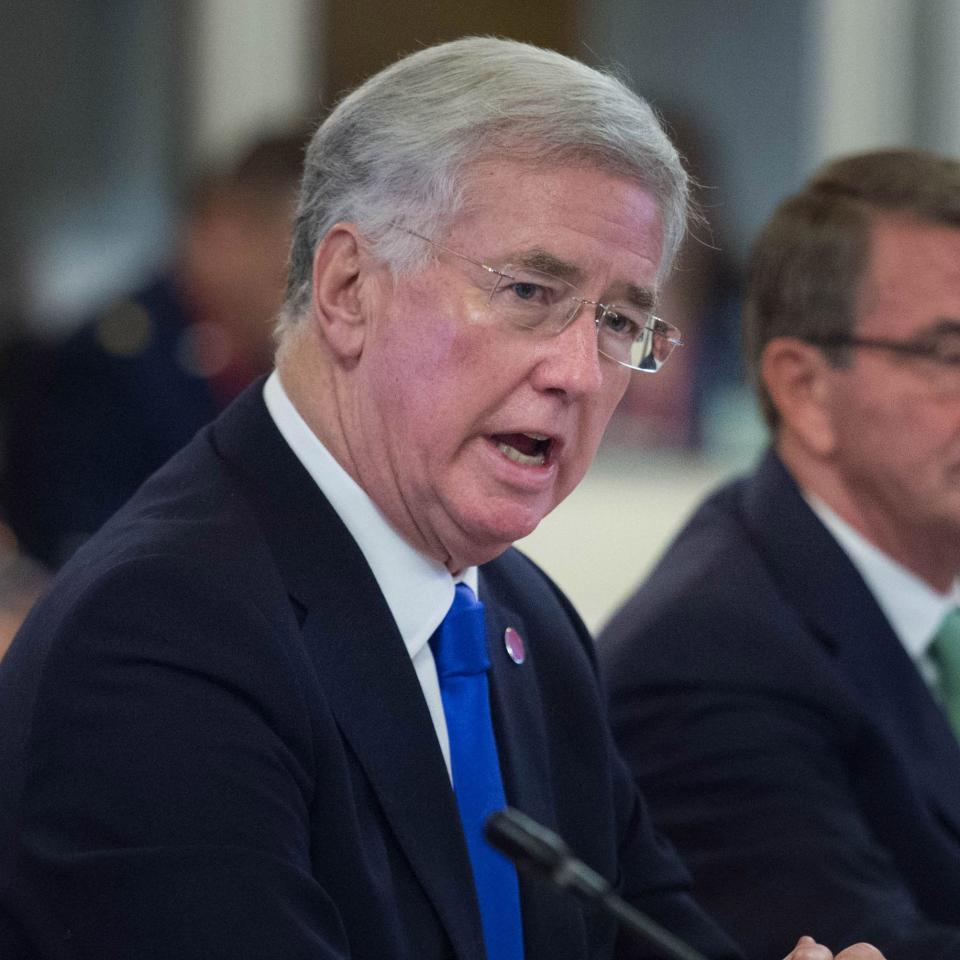Millions of refugees could make their way to Europe if Britain pulls troops out of Afghanistan, Defence Secretary warns
Britain faces the prospect of millions of Afghan refugees making their way to Europe unless British troops maintain their presence in the war-torn country, the Defence Secretary has warned.
Sir Michael Fallon said that Afghanistan risked “collapse” if British soldiers pulled out and the UK would feel the consequences “very directly”. Up to four million Afghan migrants could head to Europe, he predicted.
Sir Michael’s comments come amid plans to increase the number of British troops in the country where 456 have died since 2001. Currently 500 British soldiers are in Afghanistan training local troops.
There could be three to four million young Afghan men sent out by their villages to migrate westwards, and they are heading here
Sir Michael Fallon
Last week Mike Penning, a defence minister, announced that more soldiers were likely to be sent to Afghanistan to supplement the training.
David Cameron declared an end to British combat operations in October 2014, but Afghanistan has since struggled to hold back a resurgent Taliban and growing swathes of the country remain beyond Kabul’s control.
Now Sir Michael believes Britain cannot pull out for fear of prompting a further refugee crisis in Europe. He told the Munich Security Conference: “If it was right to go in, it has to be right not to leave before the job is done as well as we can do it.
“If this country collapses, we here will feel the consequences, very directly. There could be three to four million young Afghan men sent out by their villages to migrate westwards, and they are heading here.
“They are heading to Germany or Britain and that could be the consequence if this entire country collapses.”
Afghans seeking a better life in the West already make up one of the largest contributions to the refugee and migrant crisis which has struck Europe in the past two years.
The Defence Secretary made the case for continued British military support to the troubled country just days after the most senior US commander in Afghanistan said he needed thousands more soldiers to break a stalemate against the Taliban-led insurgency.
It also came a day after Angela Merkel said Europe had an obligation to accept more refugees. Sir Michael said that the UK’s ongoing presence was necessary because terrorist groups that British and US troops first went to root out from Afghanistan remain in the country more than 15 years later.
Britain retains around 500 troops in Kabul, training local troops and operating a quick reaction force to defend the capital from attack. At the height of the Afghan campaign, Britain had more than 10,000 troops in the country, out of an international total of nearly 150,000.
Districts of northern and central Helmand province that Britain spent years trying to secure have since largely slipped out of Kabul’s control amid heavy fighting with the Taliban.
Sir Michael said: “We are asking the government of Afghanistan and their military to deal with the same situation that we had 10 times as many troops to deal with.”
Fighters pledging allegiance to Islamic State of Iraq and the Levant have gained a foothold in the eastern province of Nangarhar, while security sources say al-Qaeda has established a presence in the far south of Kandahar province.
Sir Michael said: “There are trans-national terrorist groups in Afghanistan that wish us harm at home and here in our democracies.
“That is why we went in in the first place and those transnational terrorist groups are still there and they still pose a threat.”
Sir Michael added that the Kabul government “has asked for our help and my view is we should stay with it as long as we can until that job is done”.
Ashraf Ghani, the Afghan president, said his country was at the forefront of the international fight against terrorism and his country faced 20 internationally recognised terrorist groups.
He said: “This is not a fight that we are doing just for our own liberty, we are engaged in a fight for security of the world.”
Britain announced a small increase in troop numbers last year, but Mr Penning, the Armed Forces minister, disclosed earlier this month that Britain expected to be asked to send more reinforcements to the country.
He told the Commons defence committee: “We have no plans to draw down. Actually, there is a possibility that we might uplift because of what we are being asked to do.
“I have not been formally asked, but I might as well be honest with the committee, that’s a possibility.”
Pressed on the matter, he said: “It was an assumption I made on the conversations with the coalition.”
Afghan forces are suffering horrifying casualties and Gen John Nicholson, the top American commander in Afghanistan, warned US senators earlier this month that he was short of several thousand more international troops to break the stalemate.
America has some 8,400 troops still in the country. Afghanistan is estimated to have the second largest refugee community already, after Syria.
The United Nations refugee agency estimates some 2.6 million Afghan refugees live in more than 70 countries around the world, almost all of them in Iran and Pakistan.

 Yahoo News
Yahoo News 



